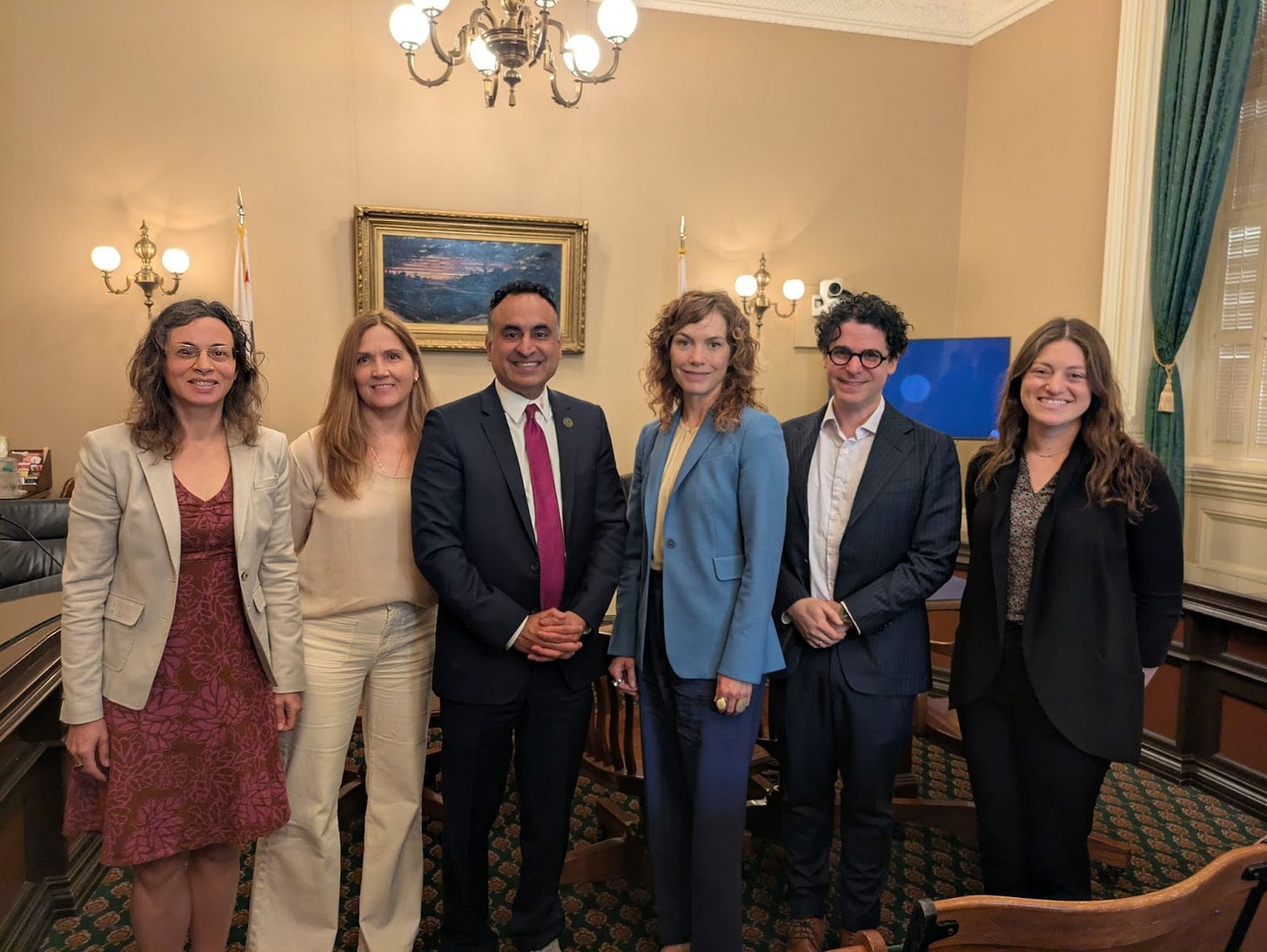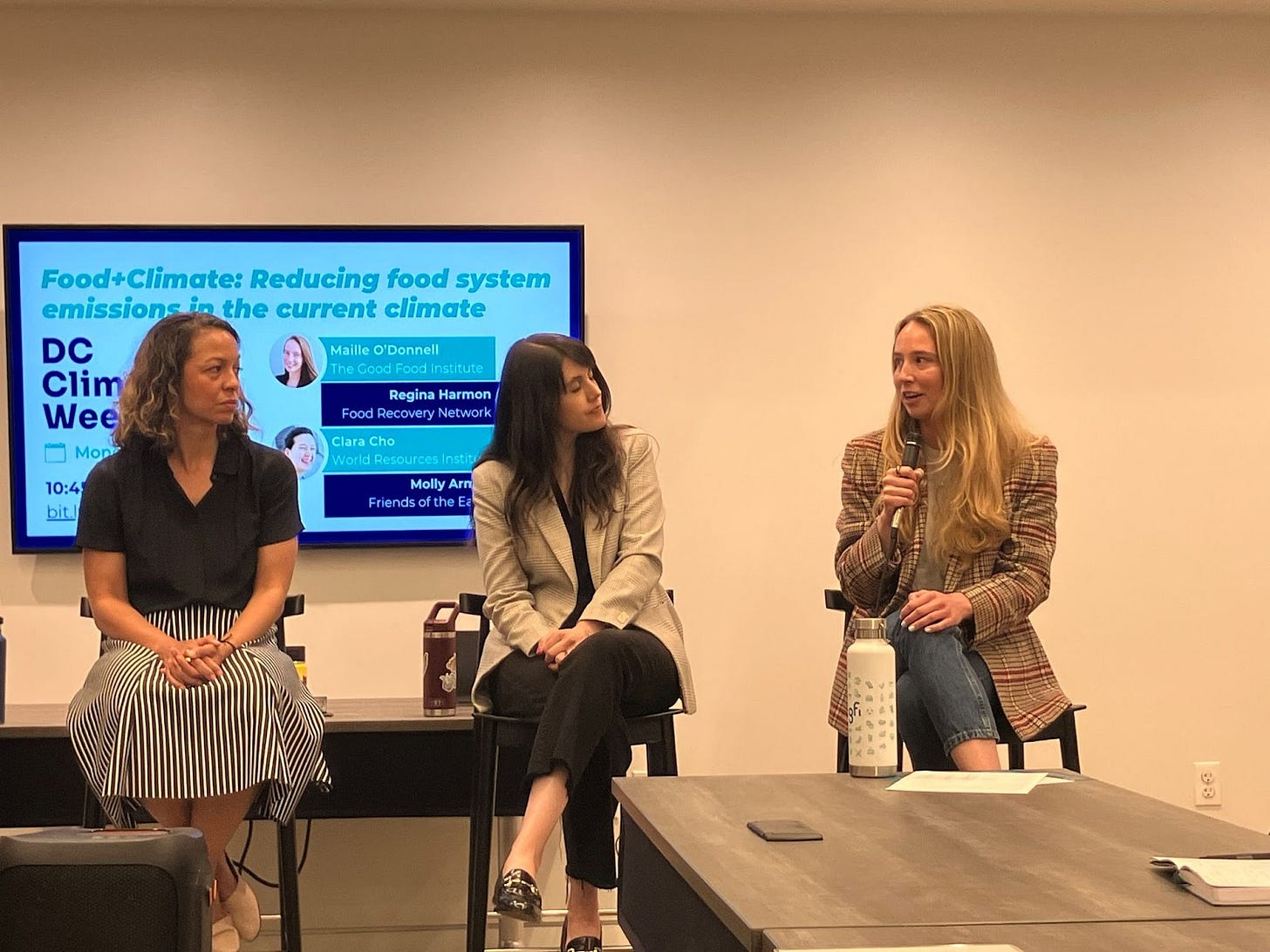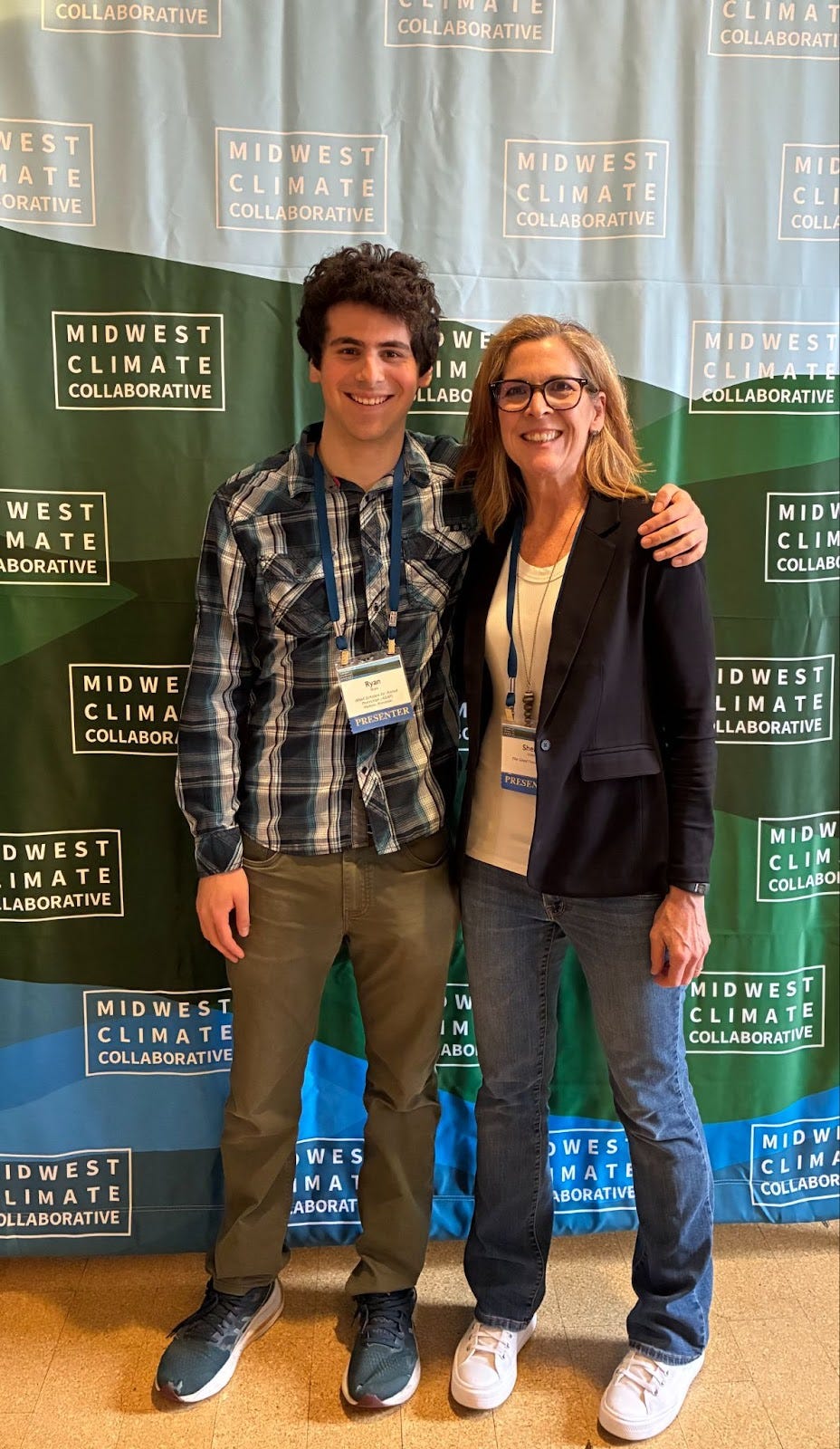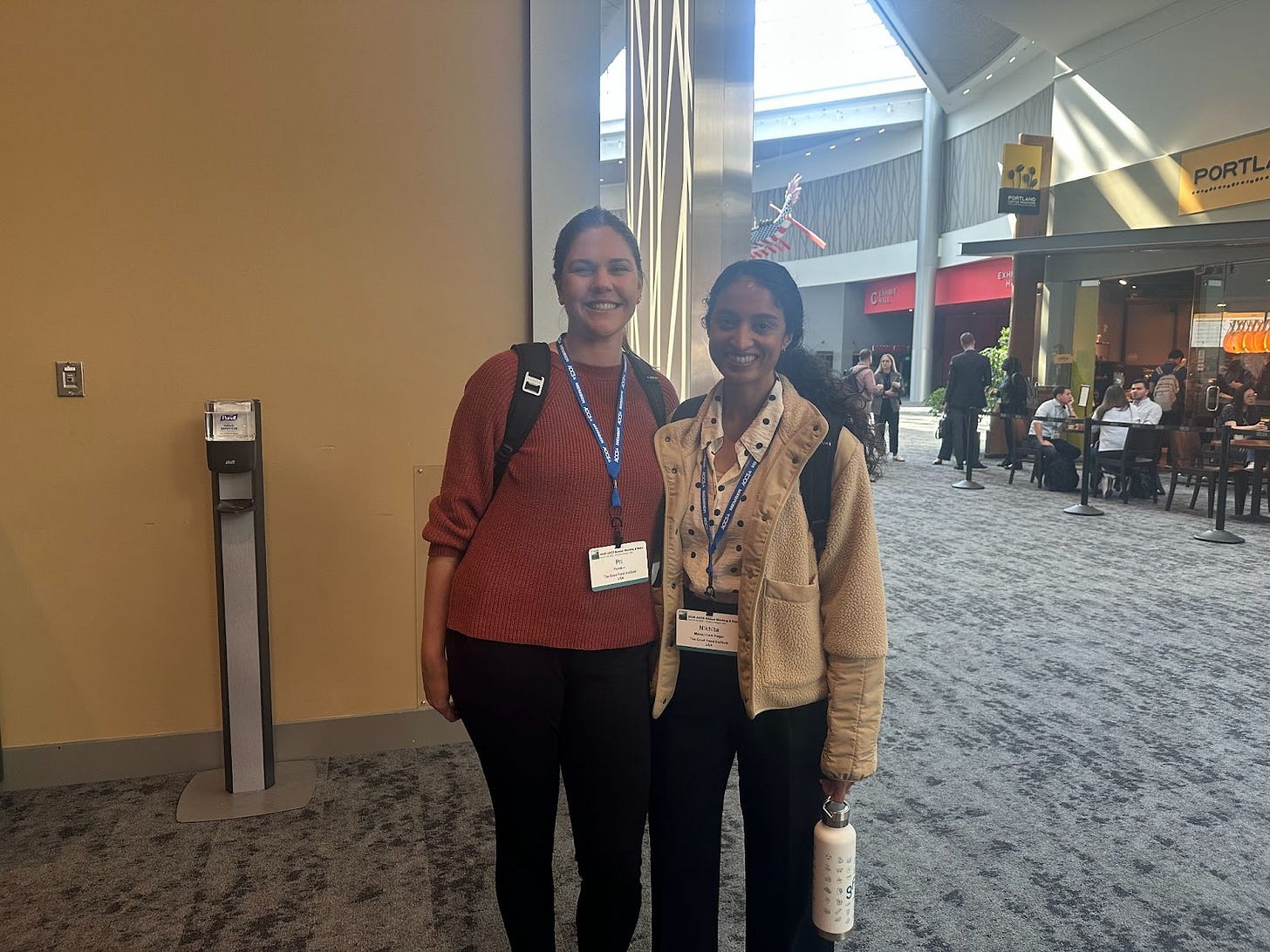Coast to coast: Bringing alternative proteins to the table at climate events around the U.S.
GFI is helping decision-makers see alternative proteins as part of a sustainable future.
As discussions about climate solutions and building a sustainable food future gain momentum, it’s critical that alternative proteins are on the agenda. Otherwise, we risk sidelining one of the most powerful tools available to help cut emissions, protect natural resources, and sustainably feed a growing population.
That’s why GFI shows up at pivotal moments and in key spaces—conference stages, policy hearings, research forums—where bold ideas about tackling climate change and building a more sustainable, resilient food system are taking shape.
Across the U.S., our team has been connecting with climate leaders, industry professionals, scientists, and policymakers to spotlight how alternative proteins can help us meet our climate, biodiversity, economic, and public health goals.
As we reach the halfway point of 2025, we’re looking back at a few of the high-impact events we’ve attended this year to share insights, build partnerships, and help ensure that food—and particularly sustainable proteins—remains part of the conversation.
DC Climate Week
Our food system is responsible for nearly one-third of global greenhouse gas emissions, yet what we eat—and how we produce and dispose of it—still too often gets left out of climate discussions. Ignoring this critical sector means missing out on one of our most powerful opportunities to protect the planet.
That’s why GFI was at Climate Week in Washington, D.C.— to make sure food stays on the climate agenda. During a panel discussion, GFI’s senior policy specialist, Maille O’Donnell. emphasized that transforming our food system is essential if we want to meet global climate goals. She highlighted that alternative proteins can significantly reduce emissions and resource use—but only with greater public investment in research, innovation, and scale-up.
By engaging with other industry leaders, GFI is helping to position alternative proteins as a powerful climate solution—not a footnote.
Heading over to the Midwest…
Midwest Climate Summit
Strengthening agricultural resilience means helping farms and food producers withstand and adapt to challenges like extreme weather, shifting markets, disease outbreaks, and supply chain disruptions. Diversifying how we produce protein can help farmers manage risk, reduce emissions, and ensure a stable, secure food supply for the future.
At the Midwest Climate Summit in Madison, Wisconsin, GFI’s senior vice president of communications, Sheila Voss, led a workshop spotlighting how sustainable proteins can build a stronger, more resilient agricultural economy across the region.
Events like this elevate sustainable agriculture as a climate solution—and build partnerships that can translate ideas into action.
Future Food-Tech Chicago
Achieving cost parity with conventional meat is a North Star goal in the alt protein space—and that requires major investments in infrastructure and scale-up. At Future Food-Tech Chicago, GFI’s vice president of science and technology, Amanda Hildebrand, moderated a panel on biomanufacturing and process design, examining how to overcome key barriers to commercialization including infrastructure, cost, and regulatory considerations.
Another piece of the alt-protein puzzle is consumer adoption. Do consumers know what alt proteins are, and if so, will they buy them? GFI’s associate director of market insights, Jody Kirchner, led a roundtable on consumer segmentation and plant-based meat. She shared new research unpacking what motivates different consumers—and how to turn curiosity into conversion.
By showing up at industry events like Future Food-Tech with science, data, and strategy, GFI helps ensure that scientific insights, market research, and practical strategies don’t stay siloed. They spread across the value chain to accelerate progress.
Over on the West Coast:
California State Assembly Select Committee on Alternative Protein Innovation hearing
California is an agricultural powerhouse—and a bellwether for food policy in the U.S. That’s why the inaugural hearing of the State Assembly’s Select Committee on Alternative Protein Innovation marked a major milestone. At this hearing, GFI senior advisor to the president, Shayna Fertig, testified alongside industry leaders, calling for increased public investment in plant-based, fermentation-derived, and cultivated proteins.
Her message: These innovations can help California meet its climate, environmental, and economic goals—while securing the state’s future as a global food leader. Further investment is key to unlocking these benefits. Watch a recording of the hearing here.
With global demand for meat continuing to rise and conventional production unable to scale sustainably, this was a pivotal moment to help lawmakers see alternative proteins as essential infrastructure for a resilient, secure, and climate-smart food system.
AOCS (American Oil Chemists’ Society) Annual Meeting 2025
Research is the engine propelling progress in the alternative protein field.
GFI is at the forefront of this movement, from our research grant program to our landmark analyses that provide critical data and insights for the broader scientific field.
This leadership was on full display at the annual AOCS Meeting, where two GFI scientists, Priera Panescu Scott, PhD, and Nikhita Mansukhani Kogar, PhD, presented key findings from our Land-use Analysis and Plant-Based Meat Life Cycle Assessment. Their work reinforces how plant-based and cultivated meat can slash food system emissions, free up land for restoration, and bolster global food security—helping researchers and policymakers alike see alt proteins as not just novel foods, but strategic tools.
As the world faces mounting environmental and food security threats, translating this science into action is more urgent than ever.









